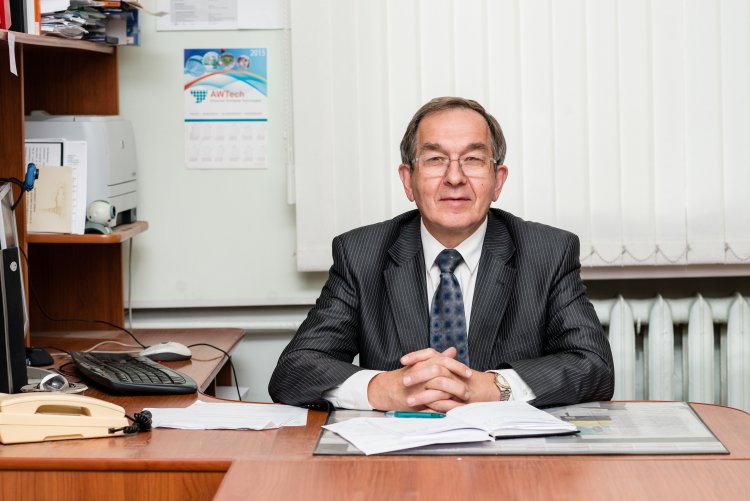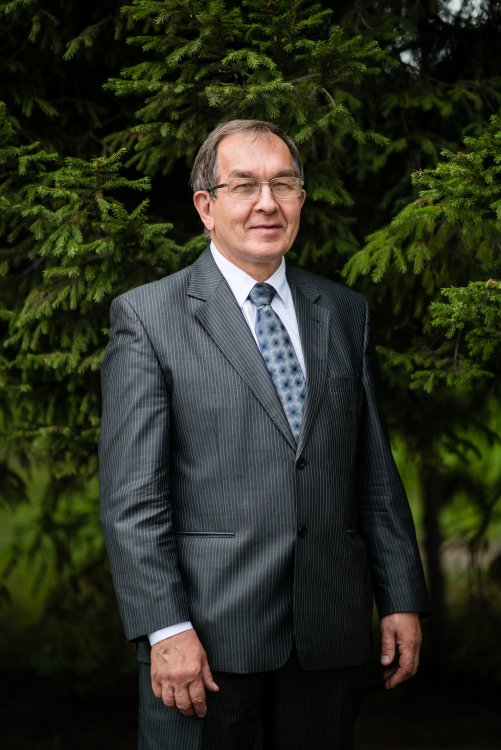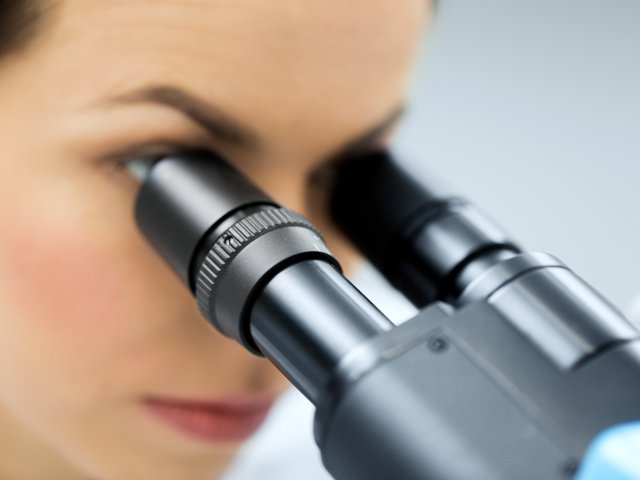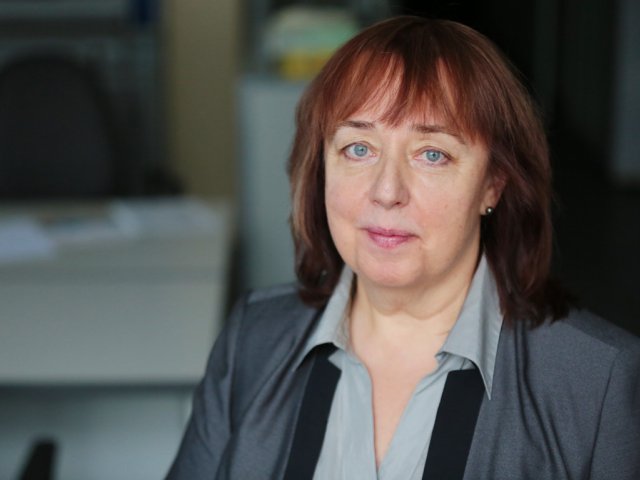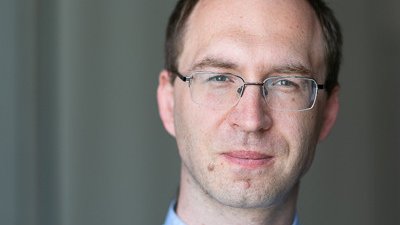Why is it wrong to talk about a new strain of coronavirus? How does the Delta variant differ from all the others and why is it more dangerous? Do vaccines help against it? Why do so many vaccinated people get sick? Should we revaccinate? What should we do to avoid getting sick? Sergey Viktorovich Netesov, Head of the Laboratory of Biotechnology and Virology at the Faculty of Natural Sciences of Novosibirsk State University, Doctor of Biological Sciences, Professor, Corresponding Member of the Russian Academy of Sciences, answered these questions. For the past 40 years his scientific and academic work has been connected with the study of viruses and projects with their use.
– Sergey Viktorovich, right now we are all really worried about a new strain of coronavirus – the Indian strain – which, as they say, is much more dangerous than the ones we already knew. Is this true, and if it is, what makes it so dangerous?
– I would not call it a strain, because a strain, in terms of virus classification, is a virus from one particular person, like one leaf on a tree, but a variant virus is a big branch with a lot of smaller branches that hold the leaves-strains. According to the political correctness policy of the World Health Organization, the variant viruses are named not by country, but by the letters of the Greek alphabet, and now there are 8 or 9 such letters assigned to different variants.
Alpha is the former British variant, Beta is the South African variant, Gamma is the Brazilian variant, and Delta is the former Indian variant. There are also other variants, with other letters, but they turned out to be less dangerous. I have to say that it was inevitable that variants would arise, because coronavirus is an RNA-containing virus, and almost all RNA-containing viruses gradually evolve, as this is one of the means of their survival.
For example, the British variant apparently appeared when a patient was being treated for cancer; he had a suppressed immune system, and the coronavirus had been circulating in his body for more than a hundred days. His immune system worked a little bit, slowly produced some antibodies, but the virus strain circulating in the human body is almost never homogeneous, in all cases it is a bit heterogeneous. And when antibodies are slowly built up and the virus continues to multiply in the body, it selects those versions that multiply better in the presence of the antibodies that appeared there. This is probably how this British variant of Alpha emerged.
When it was first discovered, the WHO labeled it as a Variant of Concern, and major vaccine makers began to study what symptoms and what percentage of vaccinated people showed symptoms when infected with this strain.
You can't process it quickly, because doctors and scientists are not going to intentionally infect vaccinated people with a virus variant. We need to carefully and ethically identify populations with the highest prevalence of this variant and monitor some samples from them, gathering all the information on symptoms and analyses.
As a result, it has already been proven that the British variant is genetically different from the original Wuhan variant, although the vaccines used provide good protection against it. Only minor differences in protective properties have been revealed.
There were similar studies conducted on the South African Beta variant and the Brazilian Gamma variant, and the results were also encouraging, although initially we feared that the vaccines would be ineffective.
– So, are they effective or not?
– They are almost as effective as against the original variant. However, the Delta variant differs from the others because its amino acid sequence of the S protein contains much more substitutions that could potentially change its structure and, therefore, its properties. Moreover, it has additional substitutions that have affected its induced symptomatology and reproductive number.
– How does the symptomatology differ?
– According to various observations, although preliminary, there are far fewer patients who lose their sense of smell and taste, but far more patients have gastrointestinal symptoms (diarrhea and pain symptoms), and the disease itself seems to be more severe, especially in the unvaccinated people and those who have not been infected before. Therefore, this variant has been of particular concern to doctors and virologists. Now the preliminary data on its reproductive rate shows that this variant is actually one and a half times more virulent. So far, we can call it its grimmest characteristic, because it is spreading faster and has displaced the former variants of the virus in most countries. The reason for it is that a person infected with this virus produces from 100 to 1,000 times more virus particles than the original variant.
For example, it has almost replaced the former variants in Europe, because it overtakes them in reproduction. The same thing is happening to us now. In St. Petersburg, almost 100 per cent of this variant is already circulating, a little less in Moscow. The reason for this is that there were and still are direct flights from St. Petersburg to India and back.
I must say, I was very surprised that these flights were not canceled as early as March. Okay, if it is so important for politics and tourists, then they should have at least made sure that only vaccinated people fly there, so that they wouldn't bring this new variant back to us along with their impressions. Why didn't they think of that? Why didn't they at least consult epidemiologists and virologists?
It is now clear that the vaccines developed last year are also effective against the Delta variant. But it has also become known that their efficacy – the protective effect – is slightly lower, by 5 to 10 percent. If the vaccine provided 95 percent protection against the original variants, now it is about 80-90 percent.
– You mean Sputnik?
– There is no clear scientific information about Sputnik yet. As for the other vaccines, we know the exact figures, we have gathered statistics and we have already published it. But we must keep in mind that both the vector vaccines Sputnik V and similar vaccines by AstraZeneca, Johnson & Johnson and the mRNA vaccines by Pfizer and Moderna are based on the exact same Wuhan variant. Given this fact, if we follow the logical way, Sputnik is supposed to protect against the Delta variant just as effectively. And I think it does, but not as effectively as against the original variants.
In the UK, it was noticed that people who have been vaccinated do not suffer severely from the Delta variant and there are almost no deaths. So, that's not bad either after all. However, since the Delta variant is spreading very rapidly, it has contributed significantly to the increased morbidity. Although, perhaps there are other, even more important reasons for the sharp increase in the morbidity of COVID-19 in Russia from May to June. Think about it: the highest increase occurred in St. Petersburg; it was the site of the economic forum, the big soccer game, the Scarlet Sails festival, the Farewell Bells and graduation parties. It all came together and resulted in this surge, although with a short delay, in all other Russian cities as well.
The same thing happened to us in Novosibirsk. Obviously, we didn't have the Scarlet Sails or the forum, but the point is that we had the same Farewell Bells just a week or two before the big boom. And then students had graduation parties with the same lack of compliance with anti-epidemic measures: the participants practically didn't wear masks during these mass events!
– Sergey Viktorovich, you say that all vaccinated people get the mild cases of disease. That's not true. I personally know a few vaccinated people who were seriously ill and needed hospitalization and oxygen support.
– I'm not a doctor, I'm a virologist, and I don't have such exact data. Each such patient has to be dealt with separately. Keep in mind that a lot of things depend on the vaccine a person was vaccinated with, how it was transported, and how it was stored. We know about the 91.4% efficacy of Sputnik from several sources, including Hungary, Argentina, and San Marino. As for our other vaccines, we only know about their efficacy from the media. Besides, for example, here in Novosibirsk we have just determined that this Indian variant came to us recently, and we don't check all the patients for its presence.
Why do they discover everything faster in England? The thing is that every one of eight patients has their genome sequenced there, while in our country, probably this figure is every one of eight thousand. The percentage of genome sequencing in England is a hundred times higher. And that is also sad, of course, because we don't actually monitor the epidemic in terms of the molecular genetics of viruses.
– A lot of doctors are now saying that after the vaccination the current level of antibodies is not high enough, so it is necessary to revaccinate. What do you think?
– It is not doctors, but virologists who should talk about this; it should be based on scientific research data, which should be systematized and published. And when some “specialists” talk about this, I always ask: where are the results of your research? Why do you only present them in the media? This is absolutely wrong and looks a lot like vaccine marketing. Moreover, the experts know well that it's not about antibody levels, but about the fact that this new variant of Delta has a slightly different structure of the S protein. Perhaps, we need a modified vaccine, not just a revaccination, in order to counter it effectively. By the way, Pfizer and Moderna are already developing and testing it, they're not using it yet, but they are conducting tests, because mRNA vaccine technology is a fast technology. Most importantly, their new vaccine variants do not differ that much compared to the previous vaccine. Its formula remains the same, and only one component – a small part of the mRNA – is changed, or rather simply modified.
As for the antibody level, keep in mind that our immunity is three-component, not one-component, and the antibody level does not necessarily correlate with the other two components.
– What should we do if we don't want to get sick?
– It is extremely important to know and strictly follow the rules for wearing masks. A friend of mine recently arrived from Moscow and he was amazed at the number of people not wearing masks at all. Well, what can we expect, if we do not follow the orders of the administrations or the recommendations of specialists?
– Many people revaccinate six months after their first vaccination or even less to raise their antibody levels. Should we do this?
– Well, let's face it. I have just checked out a website that monitors vaccination in the world. More than three billion doses of vaccines have already been delivered worldwide, but in Russia, we have only about 20 percent of the population vaccinated, and only with one dose so far. And they are already calling for revaccination. But what about those who have not been vaccinated, what should they do?
For example, here in Siberia, we have a waiting list of 20,000 people for a single, first dose of vaccination for the third time this year. So, let's make sure that we cover at least 70 to 80 percent of the population with the first dose of vaccine. And when someone starts calling for the second and third vaccination, they just cause confusion and unnecessary panic. They have no idea about the real situation with vaccination in our large country.
– So, do you think it doesn't make sense?
– Right now, it doesn't. We need to create collective immunity as quickly as possible, using our most reliable vaccine, at least the first dose of immunization, followed by the second one, 21 days later. As it should be done.
– And how can we do this if vaccination is voluntary?
– Yes, the reality is that Russia is the second most anti-vaccination country in the world after France; countries where the epidemic situation is very far from being normal. Because of these sentiments, people here do not want to be vaccinated. But the fact is, when those anti-vaccinationists get infected and fall seriously ill, they become silent. They don't tell anyone that they were so foolish. That's our main problem.
These days, I look at the comments to my lectures and the lectures of other leading Russian experts of international level on YouTube, and I only see anti-vaccinationists, anonymous ones, who say such nonsense that it's ridiculous. First, they blamed 5G for everything, then chipping, then they said that vaccines cause genome mutations, then they find fragments of HIV in the vaccines. This is not just absurd, but a parade of absurdity.
In fact, the very act of conceiving a new human being is a genetically engineered event. The genetic materials of the mother's and father's chromosomes are mixed and numerous recombinations take place. Later, when a new human being is born, they are already exposed to viral infections from the mother, from the father, and from other children during the first months of their life. By the age of seven, they have been exposed to probably 40-60 different infections, and no one ever thinks that we are constantly living in the world of viruses. At the same time, the child is already protected from a dozen infections by vaccination, otherwise our child mortality rate would be off the charts. Leo Tolstoy, quite a wealthy man, by the way, had 5 of his 13 children dead from infections in childhood. F. M. Dostoevsky had 2 out of 4 children dead from infections in infancy. And for some reason these people believe that one virus transformed into a vaccine, which has some of the genes responsible for reproduction removed, will cause a gene revolution. That's nonsense.
– Sergey Viktorovich, do you think it is necessary to make vaccination compulsory for everyone? How can we solve this problem?
– We only need to create normal communication conditions, so that people could see that there is no other way out of the epidemic. If the European Medical Agency certifies our Sputnik vaccine, and the vaccination certificates for this vaccine become legitimate in the European Union as well, it will raise the internal trust. Or we can do something else: we can just ask airlines not to accept unvaccinated people on planes. As a matter of fact, it's a very effective measure, which also prevents the coronavirus spread within the country.
– We can prevent unvaccinated people from using public transport.
– It's too early to do this yet, because there we experience a serious shortage of vaccines in the country. This is another side of the coin – not only anti-vaccination sentiments, but a real shortage of vaccines as well. We have lines for vaccinations in many cities. Only in Moscow you don't have any lines.
– Yes, I know that there are regions where it is impossible to get vaccinated, they sign people up for the fall.
– Exactly so. And we had such episodes in Novosibirsk, I think, in April – we had a line of 38,000 people. That is a very large number. And until we eliminate these lines, we cannot introduce any kind of compulsion or even think about it. But planes are the place where viruses spread around the world, around cities. Why not introduce admission only for those who have been vaccinated? The benefits are obvious. People travel routinely now, especially overseas. If we do that, it will lead to an increased commitment to vaccination. It's true what people say about fake certificates. But the question is: what are our monitoring authorities looking at?
To cut short, it is necessary to create conditions in which people will voluntarily get vaccinated, and everything will be fine. However, this must take place when there will be enough vaccines and no fake vaccination certificates.
Second, the only vaccine with proven efficacy is Sputnik V. There are no scientific publications on any of our other vaccines, and even if they exist, they only describe the first stage and are published in the magazines that do not have any credibility in the scientific world. That's why we need Sputnik.
I must say that the production of Sputnik is quite extensive right now. As far as I know, there are at least five companies that are already involved in its production, and we need the government to help these companies, because this is a complex production that requires many components, equipment, devices, and culture media, which, by the way, are produced in very small quantities in our country because we import them mostly. We need certified and thoroughly tested cow sera. And finally, in order to make good-quality vaccines, we need special devices for purifying the virus. This is what we need, and it cannot be done quickly. So, there are a lot of tasks on the way to vaccine production, but the world has many of them, too. However, these are tasks, not problems. We should simply try to solve them, and then we will win the battle for our health.
Interviewer: Nataliya Leskova
Video: Dmitriy Samsonov
